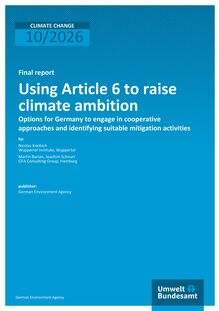Nomination of climate change adaptation projects

The German Environment Agency (UBA) has nominated 15 climate change adaptation projects to compete in the Blauer Kompass contest. Many exemplary actions are included, ranging from educational training modules in agriculture and climate-adapted housing, to heat protection for day care centres, schools and nursing homes.















